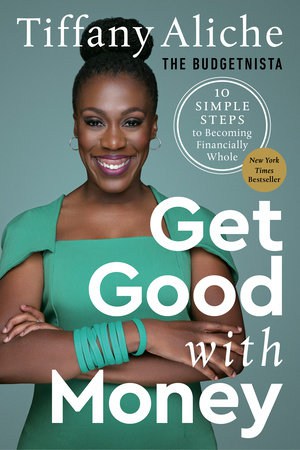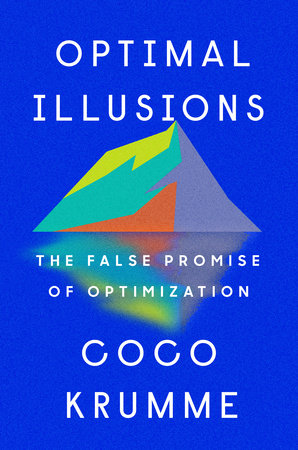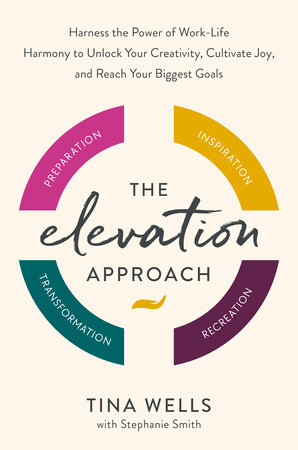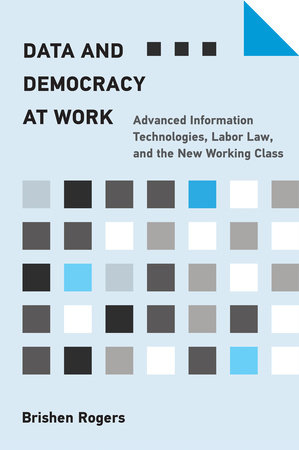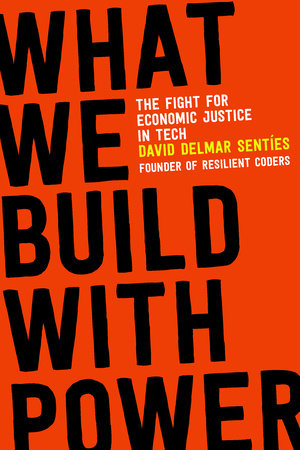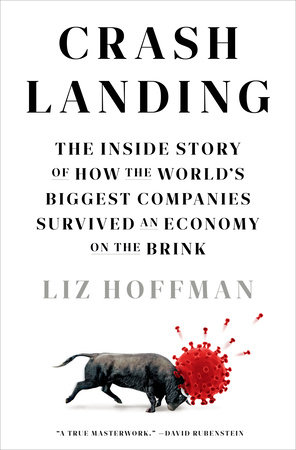“Get Good with Money” is about transforming your financial mindset and habits to achieve lasting financial well-being.
Find out how you can reshape your financial behaviors and beliefs to secure a stable future and cultivate genuine wealth.
Key Ideas
The key concepts in “Get Good with Money” are:
- Mindful Spending: Understand your spending patterns by tracking your expenses, then categorize them to identify areas where you can cut back and redirect funds towards your financial goals.
- Emergency Funds: Create an emergency fund equal to at least 3 to 6 months’ worth of living expenses to provide a safety net in case of unexpected financial setbacks.
- Debt Management: Tackle high-interest debts first, while making minimum payments on others. Consider strategies like the Debt Snowball or Debt Avalanche to systematically eliminate your debts.
- Investing Basics: Learn about different investment options and start investing even with small amounts. Over time, compounding can significantly grow your wealth.
- Retirement Planning: Begin saving for retirement early to take advantage of compound growth. Contribute to retirement accounts like 401(k)s and IRAs, and explore investment vehicles that align with your risk tolerance.
- Financial Education: Continuously educate yourself about personal finance through books, online resources, and financial literacy programs. The more you know, the better decisions you can make.
- Generational Wealth: Build a solid financial foundation not only for yourself but also for future generations. Teach your family about financial principles, passing on knowledge and assets.
Remember, these key ideas are meant to guide you toward a more secure financial future. The journey might take time, but each step brings you closer to your financial goals.
1. Mindful Spending: Tracking Your Way to Financial Control
Mindful spending is the cornerstone of financial stability. By diligently tracking your expenses, you gain a clear understanding of where your money goes. Tiffany the Budgetnista Aliche emphasizes the importance of categorizing your spending to pinpoint areas where you can make adjustments.
“Tracking your spending isn’t about restricting yourself; it’s about redirecting funds toward your financial goals.”
Through examples and practical exercises, the book illustrates how to create a budget that aligns with your priorities. Whether it’s cutting back on dining out or renegotiating monthly subscriptions, the goal is to make intentional choices that contribute to your financial well-being. By following these steps, you can avoid unnecessary expenses and allocate resources where they matter most.
2. Emergency Funds: Building Your Financial Safety Net
An essential part of financial preparedness is having an emergency fund. According to Aliche, having three to six months’ worth of living expenses saved up can provide a buffer during unexpected events like medical emergencies or job loss.
“An emergency fund isn’t just about the ‘what if’ scenarios; it’s about the ‘when’ scenarios.”
The book guides you through setting up an emergency fund, sharing stories of individuals who weathered storms due to having a financial safety net. Through automated savings, conscious decision-making, and prioritizing this fund, you can mitigate the impact of unforeseen challenges on your financial stability.
3. Debt Management: Conquering High-Interest Balances
Aliche outlines strategies for effective debt management, urging readers to tackle high-interest debts first. The Debt Snowball and Debt Avalanche methods are highlighted as powerful tools to accelerate debt repayment.
“The satisfaction of paying off your smallest debt first creates momentum for conquering larger debts.”
The book emphasizes the psychological and financial benefits of eliminating debts. By sharing stories of people who became debt-free through persistence and strategic planning, Aliche motivates readers to take control of their financial future. By consistently making extra payments and focusing on one debt at a time, you can progressively reduce your financial burdens.
4. Investing Basics: Starting Small, Growing Big
Investing might seem daunting, but Aliche breaks down the basics to make it accessible. The book encourages readers to start with whatever amount they can comfortably invest, emphasizing the power of compounding over time.
“Investing isn’t just for the wealthy; it’s a tool for wealth-building.”
Through relatable examples and jargon-free explanations, the book introduces various investment options, from retirement accounts to index funds. By staying informed, exercising patience, and diversifying your investments, you can steadily build wealth and achieve long-term financial goals.
5. Retirement Planning: Securing Your Golden Years
Thinking about retirement might feel far off, but Aliche stresses the importance of early planning. The book guides you in contributing to retirement accounts like 401(k)s and IRAs, taking advantage of employer matching programs and tax benefits.
“Your future self will thank you for starting to save for retirement today.”
Drawing on real-life stories, the book illustrates how early planning and consistent contributions can lead to a comfortable retirement. Whether it’s understanding different retirement account options or maximizing compound interest, the book equips you with the tools to ensure a secure future.
6. Financial Education: Learning for a Lifetime
Aliche emphasizes that financial education is an ongoing process. The book encourages continuous learning through books, online resources, and financial literacy programs.
“Investing in knowledge pays the best interest.”
By sharing her own journey of learning and growth, Aliche underscores the value of staying informed about personal finance. The book provides a roadmap for expanding your financial literacy, enabling you to make informed decisions and adapt to changing economic landscapes.
7. Generational Wealth: Beyond Yourself
Aliche emphasizes the importance of creating generational wealth that benefits not only you but also future generations. The book discusses strategies for building a legacy through education, assets, and estate planning.
“Generational wealth isn’t just about money; it’s about passing on values and opportunities.”
Through anecdotes and actionable steps, the book guides you in fostering financial knowledge within your family. By starting conversations about money, sharing financial principles, and creating a comprehensive estate plan, you can leave a lasting impact on the financial well-being of your loved ones.
Actionable Advice
- Start Tracking Expenses: Begin tracking your spending to identify areas where you can cut back and redirect funds towards your financial goals. Categorize expenses and create a budget that aligns with your priorities.
- Build an Emergency Fund: Work towards saving three to six months’ worth of living expenses as an emergency fund. Set up automated transfers to a separate account and prioritize this fund to provide a safety net during unexpected events.
- Begin Investing Early: Start investing with whatever amount you can comfortably afford, leveraging the power of compounding over time. Research different investment options, consider retirement accounts, and diversify your portfolio for long-term wealth growth.
Can Implementing the Strategies from “Get Good with Money” Help Create a World Without Email?
Can implementing the strategies from Get Good with Money help create a world without email? While the book primarily focuses on personal finance management, the skills learned can be applied to various aspects of life, including productivity. By adopting effective money management techniques, individuals can prioritize and streamline their tasks, potentially reducing their reliance on constant communication via email. Emphasizing efficient decision-making and clear communication channels could contribute to a more streamlined work environment, eventually paving the way for a world without email.
How You Will Improve
Your Life
Discover a transformed financial mindset and practical strategies to secure your future. Gain control over spending, eliminate debt, and invest wisely, paving the way to lasting financial stability and peace of mind.
Your Business
Apply financial principles to your business ventures, making informed decisions and maximizing profits. Learn to manage resources effectively, setting a strong foundation for growth and sustainability.
Your Relationships
Foster open conversations about money with loved ones. Share knowledge, values, and strategies for generational wealth, creating a legacy of financial well-being and opportunities for the people you care about.
Who is Tiffany the Budgetnista Aliche?
Tiffany the Budgetnista Aliche is a financial educator, author, and speaker dedicated to empowering individuals to take control of their finances. With a passion for demystifying personal finance, she has helped countless people transform their financial lives through practical advice and relatable guidance. Aliche believes that financial literacy is essential for achieving long-term wealth and well-being.
More Books from Tiffany the Budgetnista Aliche
- “The One Week Budget”: A step-by-step guide to creating a personalized budget that aligns with your goals and priorities. Aliche’s approach makes budgeting accessible and effective, helping you manage your money with confidence.
- “Live Richer Challenge”: This interactive book offers daily tasks and challenges over a series of weeks, designed to help you improve your financial habits and achieve specific financial goals. It’s a hands-on guide to building a strong financial foundation.
Read These Next
You might like these similar books:
- “The Total Money Makeover” by Dave Ramsey
- “Rich Dad Poor Dad” by Robert T. Kiyosaki
- “The Millionaire Next Door” by Thomas J. Stanley
- “I Will Teach You to Be Rich” by Ramit Sethi
- “The Richest Man in Babylon” by George S. Clason

